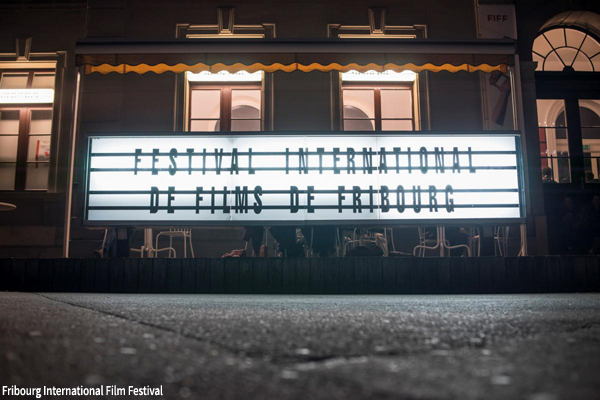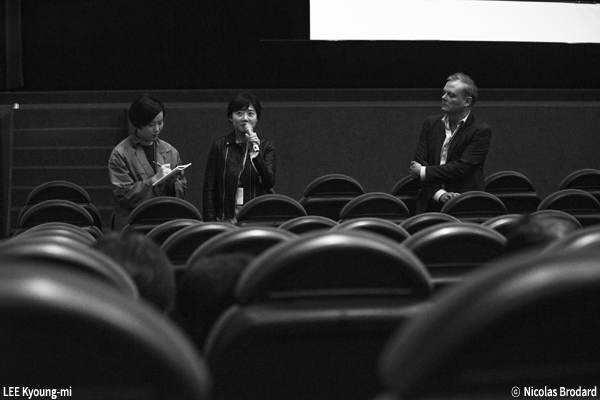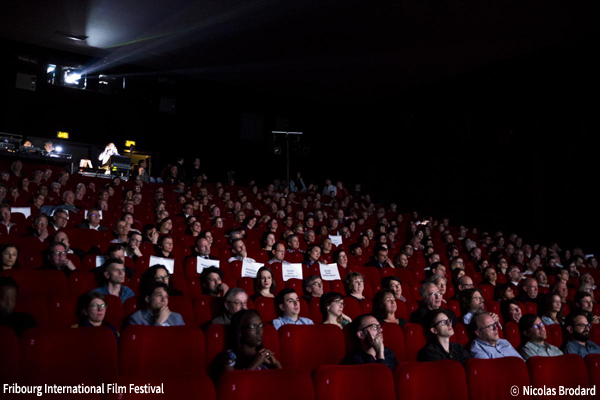Long a bastion of Korean cinema in Central Europe, the Fribourg International Film Festival (FIFF) took place between March 30th and April 9th this year, celebrating a 31st edition which featured a bumper crop from Korea. 10 Korean films made it into the carefully curated lineup, without the help of any special programs or retrospectives consecrated. Among them were LeeE Kyoung-mi’s
The Truth Beneath, vying for the festival’s Regard d’Or prize, a variety of genre films screening across different sections, including Na Hong-jin’s
THE WAILING and Yeon Sang-ho’s
TRAIN TO BUSAN, and a special screening of Yoon Ga-eun’s
The World of Us for students.
Korean Films in the Green Hills
Swapping out the early spring smog of Seoul for the crisp and clear Alpine air of Switzerland, I packed my bags last month to return to FIFF for the second time. When I first visited in 2012 it was my first opportunity to cover a festival with a press badge, a privilege I heavily indulged in, eventually collecting almost 50 ticket stubs over 10 days. This time around I clocked up a far smaller total (and no ticket stubs, as the festival now employs an efficient digital ticketing system) but had the pleasure of enjoying a new experience at the festival, marking my first visit since becoming a program advisor for the festival in 2013.
Truth be told, Fribourg is the region I grew up in and it wasn’t until I finally made it to the festival that I discovered that there were other people that shared my passion for Korean cinema in the green hills leading up to the Alps. Namely, it was the time I first met Thierry Jobin, the artistic director of FIFF, who at the time had just taken charge of the festival and later asked me to help him navigate the broad array of Korean titles that emerge from the commercial and independent sectors each year. During our first conversation, awkwardly broached by myself during a short bus ride from a cocktail put on by the town in the charming ‘Vieille ville’ (old town), we excitedly chattered on about Bong Joon-ho’s
Snowpiercer (2013), which was then on the cusp of beginning production.
Jobin follows a distinguished line of former FIFF directors, including Édouard Waintrop, the current General Delegate of the Cannes Film Festival’s Directors’ Fortnight sidebar, and Martial Knaebel, who received the Korean Cinema Award for contributions to the promotion of Korean Cinema at the Busan International Film Festival in 2006.
Central to FIFF is its International Competition, which welcomes 12 films every year from Africa, Asia and South America to compete for the prestigious Regard d’Or, an award that comes with USD 30,000 in prize money. Typically, one film from Korea makes it into the lineup each year and 2017 was no different, with Lee Kyoung-mi’s
The Truth Beneath screening alongside a diverse array of acclaimed works of global cinema, such as the Singaporean death row prison guard drama The Apprentice from Boo Junfeng (the eventual winner this year), Mattie Do’s Laotian horror
Dearest Sister and Kirill Serebrennikov’s Russian stageplay adaption
The Student.
Korean films have been especially successful vying for the Regard d’Or, which four works clinching the fest’s top prize since 2000. First was Jeon Soo-il’s
The Bird Who Stops in the Air, then Park Ki-yong’s
Camel(s) (2002) and Lee Chang-dong’s
Poetry in 2011. Most recently it was the indie phenomenon Han Gong-ju that earned the award in 2014. Korean competition titles during Jobin’s tenure have also included Heo Jong-ho’s
Countdown in 2012, Jang Kun-jae’s
Sleepless Night (2013), July Jung’s
A Girl at My Door (2014) and Shin Su-won’s
Madonna last year.
FIFF invites the directors of all its competition film to town each year and director Lee was on hand for the majority of the festival, taking part in Q&As for all four of her film’s screenings.
The Truth Beneath, Lee’s second work following her 2008 comedy Crush And Blush, debuted commercially at home in June last year and has earned several awards in Korea, including Best Director from the Korean Film Critics Association. It has also screened around the world, with stops including an Opening Night invitation at the London Korean Film Festival and a competition slot at the Golden Horse International Film Festival in Taipei.
Also in town during the festival was veteran star and current director of the Busan International Film Festival Kang Soo-youn, who took part in this year’s International Competition jury. In addition to watching films, she was also invited to present a film in a section that highlights important works by each year’s jury members. Kang took part in a Q&A for her 1991 classic
The Road To Race track, from director Jang Sun-woo and co-starring Moon Sung-keun, Kang gave some context to the work, explaining the chaotic political climate during which the film emerged.
The audience attracted by Korean Films
One of the most talked about films during the festival was Yeon Sang-ho’s global blockbuster
TRAIN TO BUSAN, which screened in a midnight slot, just as it did during its Cannes premiere last year. Despite having already opened theatrically in Switzerland last year and being available on DVD and Blu-ray, it was a top drawn during its five screenings, including several sold out shows screened in 4DX.
Also in the midnight lineup was Kim Jee-woon’s explosive Colonial Era spy action-drama
The Age of Shadows, which bowed at the Venice International Film Festival last year and No Zin-soo’s titillating high concept comedy
The Maidroid.
Another section that featured several Korean works was this year’s Genre Cinema section, which focused on works exploring ghost stories. Two films about the world of Korean shamanism were included, Na Hong-jin’s
THE WAILING, which premiered at out of competition in Cannes last year, and Kim Hwi’s
The Chosen: Forbidden Cave, the Closing Film of the Bucheon International Fantastic Film Festival in 2015.
THE WAILING features Chun Woo-hee, the lead of past Regard d’Or winner Han Gong-ju. Also in the section was Mo Hong-jin’s revenge thriller
Missing You, which bowed theatrically just over a year ago.
Making a special appearance in a section devoted to the cinema of Nepal was the mountaineering drama The Himalayas, which takes place on Mount Kanchenjunga, the world’s third highest mountain. From director Lee Seok-hoon, the film features the current box office king Hwang Jung-min, who also co-stars in
THE WAILING.
Lastly, Yoon Ga-eun’s debut
The World of Us, which debuted at the Berlin International Film Festival last year and has gone on a sensational festival and awards run, which most recently included the Grand Prize from last week’s Wildflower Film Awards Korea, was screened for local secondary school students in Fribourg.
Introductions for the many Korean films this year kept me busy during my time in Fribourg but the trip, punctuated by film screenings and several fondues, came to an end all too quickly. The festival will now begin the search for its 32nd edition program selections, which will surely feature Korea’s varied cinematic output once again.
By Pierce Conran, Cine21 reporter
- See more at:
http://www.koreanfilm.or.kr/jsp/news/features.jsp?pageIndex=1&blbdComCd=601013&seq=360&mode=FEATURES_VIEW&returnUrl=&searchKeyword=
These contents were reproduced with the permission of Kofic, which holds all copyright.



![[Column] A year and a half of Yoon’s foreign, security policies has added to Korea risk [Column] A year and a half of Yoon’s foreign, security policies has added to Korea risk](https://flexible.img.hani.co.kr/flexible/normal/500/300/imgdb/original/2023/1226/1517035766989839.jpg) [Column] A year and a half of Yoon’s foreign, security policies has added to Korea risk
[Column] A year and a half of Yoon’s foreign, security policies has added to Korea risk![[Column] Korea’s diaspora discrimination [Column] Korea’s diaspora discrimination](https://flexible.img.hani.co.kr/flexible/normal/500/300/imgdb/original/2023/1225/3417034701814775.jpg) [Column] Korea’s diaspora discrimination
[Column] Korea’s diaspora discrimination